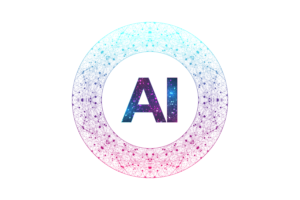
While AI-generated content can offer significant benefits for website owners, there are several limitations to consider. Here are some of the most significant:
- Lack of Creativity: AI-generated content is based on algorithms and rules, which means that it can be limited in its creativity. While AI can generate a lot of content quickly and efficiently, it may not be able to create content that is truly unique or inspired.
- Limited Understanding of Context: AI is not always able to fully understand the context in which content is being created. For example, AI may not be able to recognize the nuances of a particular industry or topic, which could lead to inaccuracies or misunderstandings.
- Difficulty with Tone and Voice: AI-generated content may struggle with creating a consistent tone or voice that matches the brand or website. This could be especially problematic for websites that rely heavily on branding and personality to connect with their audience.
- Inability to Handle Complex Topics: Some topics may be too complex for AI to handle effectively. For example, a website that deals with legal or medical topics may require a level of expertise and nuance that AI cannot provide.
- Limited Ability to Adapt: AI is based on algorithms, which means that it can be limited in its ability to adapt to changing circumstances. For example, if a new trend or development emerges, AI may not be able to adapt quickly enough to produce relevant content.
Overall, while AI-generated content can offer significant benefits in terms of efficiency and productivity, it may not be suitable for all websites or content types. It is important to carefully consider the limitations and potential drawbacks before implementing AI-generated content on a website.
Addendum: AI’s Access to the Internet and Its Implications on Content Generation
June 3rd, 2023
There have been advancements in AI that have enabled it to access the internet and gather information from a vast array of sources. This expanded capability has both benefits and limitations compared to the previously mentioned limitations of AI-generated content. Let’s explore them further:
Benefits:
- Enhanced Knowledge Base: By accessing the internet, AI can tap into a vast amount of information and data from diverse sources. This allows AI-generated content to have access to up-to-date information, current trends, and a broader range of perspectives. It can improve the accuracy and relevance of the content produced.
- Improved Contextual Understanding: With access to the internet, AI can gather contextual information and understand the nuances of various industries, topics, and specific domains. It can analyze a wider range of sources, including industry-specific websites, forums, and expert opinions. This helps AI-generated content to have a better understanding of the subject matter and produce more contextually accurate content.
- Dynamic Adaptation: AI’s internet access allows it to adapt to changing circumstances and evolving trends more effectively. By continuously scanning the internet, AI can identify emerging patterns, new information, and evolving user preferences. This enables it to produce content that remains relevant and aligned with the latest developments.
Limitations:
- Verifying Information Accuracy: While AI can access a vast amount of information on the internet, verifying the accuracy and reliability of that information becomes crucial. AI may encounter biased or false information, and without proper validation mechanisms in place, there is a risk of propagating misinformation or inaccuracies.
- Data Overload and Quality Control: The internet is a vast repository of information, but not all of it is reliable or high-quality. AI may struggle to filter through the massive amount of data available and discern the most relevant and credible sources. Maintaining rigorous quality control becomes essential to ensure that AI-generated content meets the required standards.
- Ethical and Legal Considerations: AI’s access to the internet raises ethical and legal concerns, such as copyright infringement or plagiarism. Without proper safeguards, AI might inadvertently produce content that infringes upon intellectual property rights or violates legal guidelines. Ensuring that AI-generated content adheres to ethical and legal standards becomes an important consideration.
The ability of AI to access the internet brings both advantages and challenges to content generation. While it expands the knowledge base, improves contextual understanding, and facilitates dynamic adaptation, there is a need for robust verification processes, quality control measures, and adherence to ethical and legal considerations. Understanding these implications is crucial for effectively harnessing AI’s potential in generating accurate, relevant, and reliable content.
